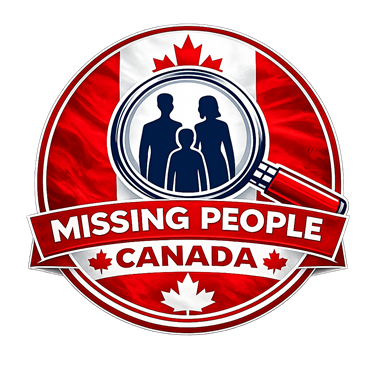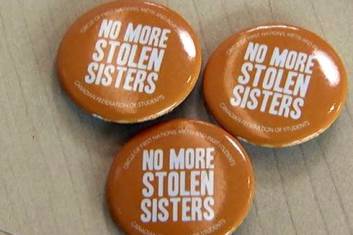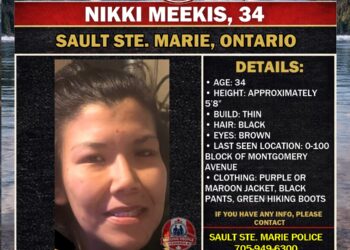Every year on October 4, the 1,200 missing and murdered Indigenous women and girls are remembered and honoured across Canada.
In Peterborough, the faces and names of some of the ‘missing sisters’ are on display at the Gathering Space at Trent University’s Gzowski College.
Organizers with the Trent University Native Association (TUNA) say people need to recognize the issue is only part of a much bigger picture and that the missing and murdered women, the Truth and Reconciliation Commission and Indigenous land claims are all connected and need to be treated as such.
“I think what you are seeing is a de-humanization of Indigenous women, of Indigenous land so once you disconnect a people from their humanity, it’s easy to ignore their suffering,” said Shanese Steele with TUNA.
Women’s Employment Worker Kate Brennan says to understand the issues facing Indigenous people in Canada, like missing and murdered women and girls, the rest of the county should closely listen to Indigenous people, and to treat them as individuals.
“You need to realize that not every Indigenous person is the head, the spokesperson, for all Indigenous people, so everybody had different knowledge, different teachings and such, just listen to individuals and don’t group anybody,” she said.
The National Inquiry into Missing and Murdered Aboriginal Women and Girls continues to make stops across the country. It will be in Winnipeg for a community hearing next week.







